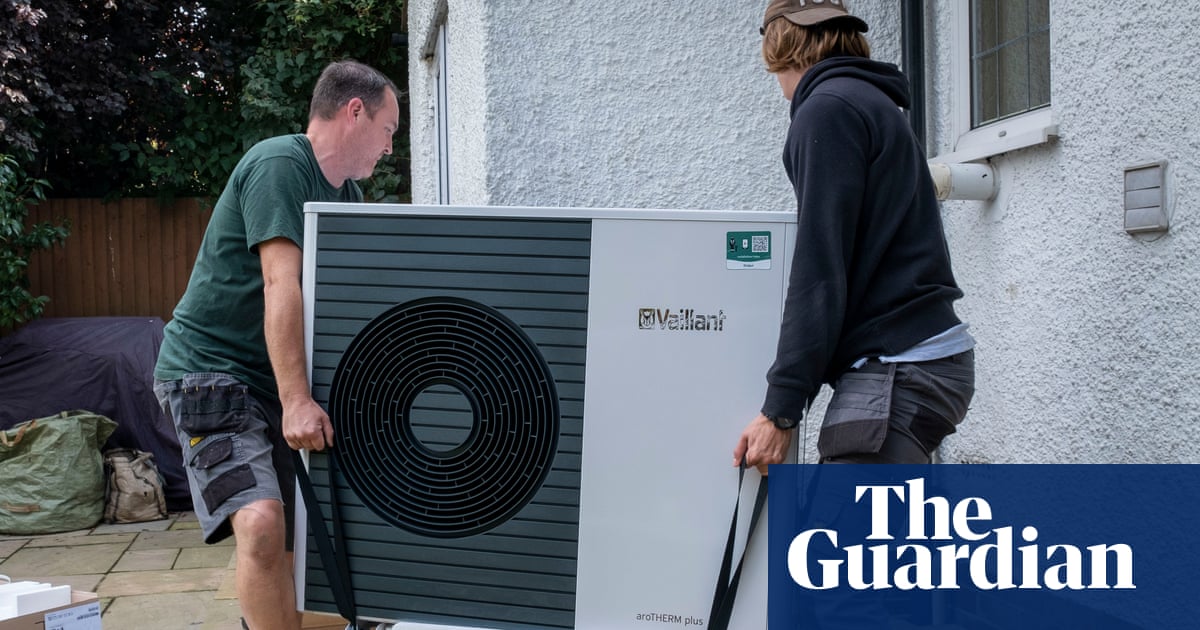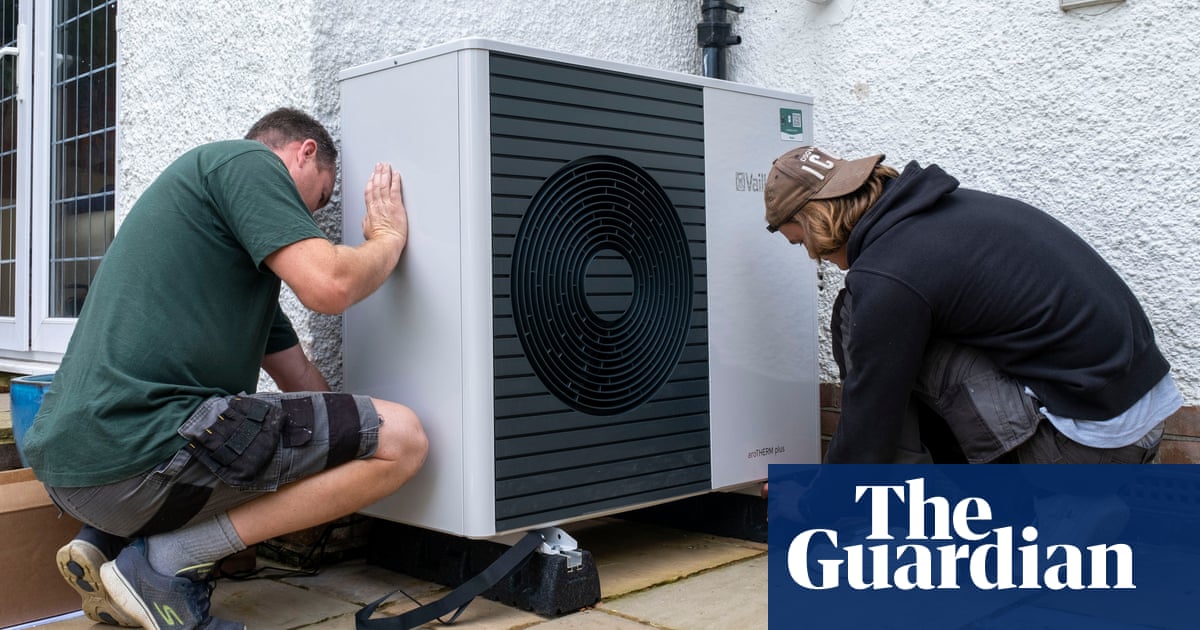
A new type of heat pump that may soon be rolled out in the UK could ease the shift for homes to low-carbon heating but is no quick fix, experts say.
The Swedish company Vattenfall and the Dutch company Feenstra claim their new high-temperature heat pump, being launched in the Netherlands this year, could replace gas and oil boilers in UK homes without the need for added insulation or new radiators like other heat pumps.
The developers claim their product is not a “one-size-fits-all solution” for everywhere in the country, but it could be the most effective solution to low-carbon heating in rural and suburban areas.
“The high-temperature heat pump solution is innovative, simple to install and could be the solution to help decarbonise homes in the UK that are heated using traditional gas boiler,” said Mark Anderson, the commercial and development director at Vattenfall Heat UK.
Heat pumps work by taking heat from outside air and transferring it inside, but without making changes in a home most heat pumps cannot reach the same heat as the gas and oil boilers they would replace.
Dustin Benton, policy director at the Green Alliance thinktank, said making these changes could be a barrier to some people shifting towards heat pumps and having innovations in the technology helps to make the market more viable.
“The typical argument is to insulate your house but there are some properties where it’s difficult, because it’s old and expensive to do, or where people don’t want to for aesthetic reasons,” said Benton. “If you want to do the best thing for the planet, you should insulate your home and get a low-temperature heat pump but if you can’t do that, or don’t want to do that and want to go green, then you can go for high-temperature heat pumps.”
The UK government has promoted the use of heat pumps, proposing that they lead a shift away from fossil fuel-based heating. Rishi Sunak, the chancellor, promised in October to subsidise up to 90,000 homes to install heat pumps.
But Insulate Britain has accused the government of ignoring the importance of insulating homes in their focus on heat pumps.
“It makes no sense to believe that heat pumps, on their own, will solve the central issue of heating homes whilst reducing CO2 emissions,” said Tim Gough, a lecturer in architecture and Insulate Britain activist.
“Deal with the fabric of the building to reduce CO2 emissions and heating bills by increasing insulation, improving windows, and reducing air infiltration from outside. Then you may well be in a position to reduce significantly the amount of heat needed for comfort and health.”
Jerry Whiteley, technical manager at the Chartered Institute of Plumbing and Heating Engineering, said new products claiming not to require insulation do not offer a quick fix because it will take time to train enough people to be able to install the heat pumps as most engineers are experienced with boilers.
He also said it was important for these engineers, including newcomers retraining from other professions, to understand how the design of a heating system works and not simply the installation of a heat pump without considering other parts, including the insulation.
“The more insulation you have in your property, the less heat you have to put in it. It doesn’t matter how high the heat pump works, you don’t want to be having to use that much heat,” he said.
Stew Horne, the head of policy at the Energy Saving Trust, said both high- and low-temperature heat pumps needed to be considered, because emissions from heating and hot water needed to be cut by 95% to meet 2050 net zero targets.
“It is a bold target that will require significant changes within the next 10 years. We need to become more energy efficient and support householders to retrofit their homes,” said Horne.












